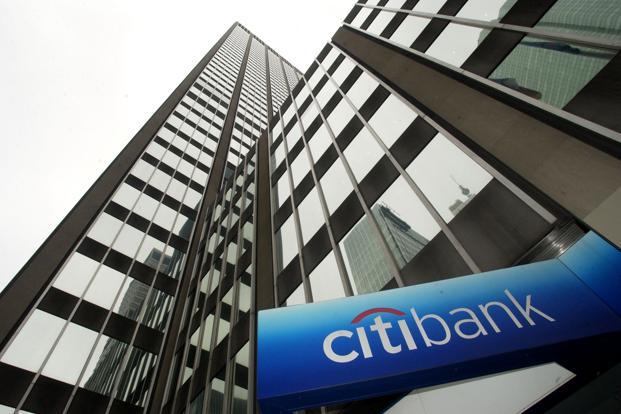Citi Joins HSBC Funded Blockchain Trade Finance Network Contour
Citi is entering the blockchain trade finance network, Contour. Earlier known as the Voltron Letter of Credit blockchain, Contour was commercially launched last month in Singapore.
Yesterday it was declared that Citi Ventures has funded in the platform. This is one of the various blockchain news by Citi in a matter of weeks.
Contour’s focus is digitizing the Letter of Credit process, which is recently much paperwork burdensome. It intends to bring improved transparency and efficiency to the process and decrease the settlement between banks and trading partners.
As an instance of the transparency, typically, paper documents are couriered to classify them from cargo. But that takes time and can be blocked. Because documents are digitally signed on the Contour platform, they are accessible in real-time, and there’s a belief that they haven’t been tampered with.
“With international trade being of such significant importance for the global economy, with trillions of dollars’ worth of goods in circulation, proper financing is vital for its continued growth,” said Carl Wegner, CEO of Contour.
“Our network provides trusted information in real-time, digitizing the process for all users. To have a significant global trade player like Citi, join us is a tremendous validation of the work we are doing and allows us to continue creating greater efficiency for the industry.”
Based on R3’s Corda blockchain, Contour was established by seven banks, Bangkok Bank, CTBC Holding, BNP Paribas, SEB, HSBC, ING, and Standard Chartered. Other backers comprise consultants Bain & Company and technology partner CryptoBLK as well as R3. NatWest appears to have seeped out of the consortium during the commercial launch.
In the last few weeks, Citi published plans to go live on the CobaltFX DLT platform. It went into making on another forex network, CLSNet. And Citi also commenced utilizing Axoni’s DLT equity swap solution.
Several years ago, Citi was operating internally on a blockchain-based supply chain finance solution. It’s also a participant in the commodity trade finance network komgo.
Other blockchain bets involve an investment in Symbiont, and aid in ID2S the blockchain central securities depository for European commercial paper.
As of 2018, the global trade finance market was valued at $39 billion, according to Allied Market Research. Meanwhile, the Asian Development Bank estimates the global trade finance gap to be about $1.5 trillion. So, the opportunity is vast, and various blockchain projects are presently at work to achieve specific markets.
The Marco Polo Network is one such high-profile trade finance blockchain, which is initially targeting large enterprises. Based on R3’s Corda, the platform is anticipating to see a client go into production soon.
Stay informed with daily updates from Blockchain Magazine on Google News. Click here to follow us and mark as favorite: [Blockchain Magazine on Google News].
Get Blockchain Insights In Inbox
Stay ahead of the curve with expert analysis and market updates.
latest from tech
Disclaimer: Any post shared by a third-party agency are sponsored and Blockchain Magazine has no views on any such posts. The views and opinions expressed in this post are those of the clients and do not necessarily reflect the official policy or position of Blockchain Magazine. The information provided in this post is for informational purposes only and should not be considered as financial, investment, or professional advice. Blockchain Magazine does not endorse or promote any specific products, services, or companies mentioned in this posts. Readers are encouraged to conduct their own research and consult with a qualified professional before making any financial decisions.

 Bitcoin
Bitcoin  Ethereum
Ethereum  XRP
XRP  Tether
Tether  Solana
Solana  Dogecoin
Dogecoin  USDC
USDC  Cardano
Cardano  Lido Staked Ether
Lido Staked Ether  TRON
TRON  Avalanche
Avalanche  Wrapped stETH
Wrapped stETH  Toncoin
Toncoin  Chainlink
Chainlink  Shiba Inu
Shiba Inu  Sui
Sui  Stellar
Stellar  Wrapped Bitcoin
Wrapped Bitcoin  Hedera
Hedera  Polkadot
Polkadot  WETH
WETH  Bitcoin Cash
Bitcoin Cash  Pepe
Pepe  Uniswap
Uniswap  LEO Token
LEO Token  Hyperliquid
Hyperliquid  Litecoin
Litecoin  Wrapped eETH
Wrapped eETH  NEAR Protocol
NEAR Protocol  Ethena USDe
Ethena USDe  USDS
USDS  Aptos
Aptos  Internet Computer
Internet Computer  Aave
Aave  Virtuals Protocol
Virtuals Protocol  Mantle
Mantle  Bittensor
Bittensor  Cronos
Cronos  POL (ex-MATIC)
POL (ex-MATIC)  Ethereum Classic
Ethereum Classic  Render
Render  Artificial Superintelligence Alliance
Artificial Superintelligence Alliance  MANTRA
MANTRA  Monero
Monero  Tokenize Xchange
Tokenize Xchange  WhiteBIT Coin
WhiteBIT Coin  Algorand
Algorand 



